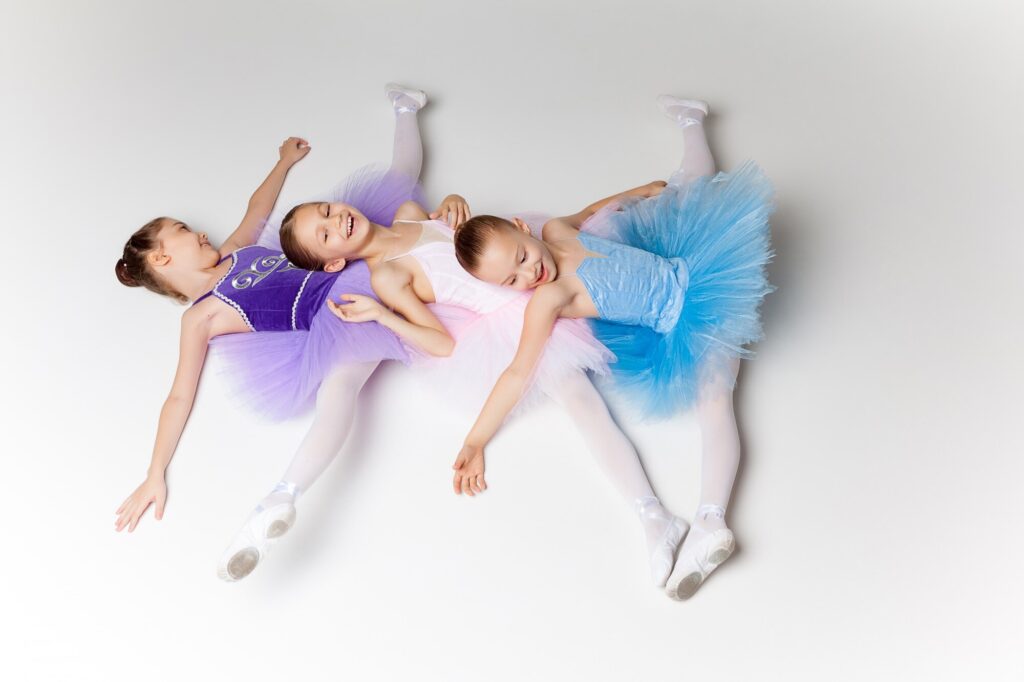Dance and drama are not just forms of entertainment; they also have numerous benefits for children’s development. Engaging in dance and drama activities can improve cognitive, emotional, and physical development in children. These activities allow children to express themselves creatively, build confidence, enhance social skills, explore emotions and empathy, develop communication skills, foster creativity and imagination, encourage physical fitness, engage in cultural appreciation, and prepare for public speaking and performance opportunities. By incorporating dance and drama into children’s lives, parents and educators can provide them with a well-rounded education that promotes holistic development.

The Benefits of Dance and Drama for Children’s Development
Dance and drama activities have been shown to have a positive impact on children’s cognitive, emotional, and physical development. When children engage in these activities, they are required to think critically, problem-solve, and make decisions. This helps to improve their cognitive abilities such as memory, attention span, and concentration. Additionally, dance and drama activities involve learning choreography or scripts, which can enhance children’s language skills and vocabulary.
Emotionally, dance and drama provide an outlet for children to express themselves creatively. Through movement and acting, children can explore different emotions and learn how to manage them effectively. This can help them develop emotional intelligence and resilience. Furthermore, participating in dance and drama activities can boost self-esteem and confidence as children receive positive feedback from their peers and instructors.
Physically, dance requires coordination, balance, flexibility, and strength. By engaging in dance activities regularly, children can improve their overall physical fitness. Similarly, drama activities often involve movement and physical expression, which can help children develop their motor skills.
Building Confidence through Creative Expression
One of the key benefits of dance and drama for children is the opportunity to build self-esteem and confidence through creative expression. When children engage in these activities, they are encouraged to express themselves freely through movement and acting. This allows them to explore their own unique ideas, thoughts, and emotions.
Through creative expression, children learn to trust their instincts and make choices without fear of judgment. They gain confidence in their abilities and develop a sense of self-worth. This confidence can extend beyond the dance or drama studio and into other areas of their lives, such as school or social interactions.
Enhancing Social Skills through Group Performances
Group performances are a common aspect of dance and drama activities. Whether it’s a dance recital or a theater production, children often have to work together as a team to create a successful performance. This provides an excellent opportunity for them to develop social skills such as teamwork, communication, and cooperation.
In a group performance, children learn the importance of working together towards a common goal. They have to listen to each other, communicate effectively, and support one another. They also learn how to compromise and resolve conflicts that may arise during the creative process.
By participating in group performances, children develop a sense of belonging and camaraderie with their peers. They learn how to be respectful and considerate of others’ ideas and opinions. These social skills are invaluable in all aspects of life and can help children build strong relationships with others.
Exploring Emotions and Empathy through Acting and Movement
Acting and movement are powerful tools for children to explore and understand their own emotions as well as develop empathy for others. Through acting, children can step into different characters’ shoes and experience a wide range of emotions. This allows them to develop a deeper understanding of human emotions and how they can be expressed.
Similarly, through movement in dance, children can express their emotions physically. They can use their bodies to communicate feelings such as joy, sadness, anger, or fear. This physical expression helps children connect with their emotions on a deeper level.
By exploring their own emotions through acting and movement, children develop a greater sense of self-awareness and emotional intelligence. They also learn to recognize and empathize with the emotions of others, which is an important skill for building positive relationships and fostering a sense of compassion.
The Importance of Play in Dance and Drama Education

Play is an essential aspect of dance and drama education. It allows children to explore, experiment, and discover new skills in a fun and engaging way. Through play, children can develop their creativity, imagination, problem-solving abilities, and social skills.
In dance, play can take the form of improvisation or creative movement exercises. Children are encouraged to move freely and explore different ways of expressing themselves through dance. This allows them to develop their own unique style and discover new movements.
In drama, play can involve improvisation games or role-playing activities. Children are given the freedom to create characters, stories, and scenes using their imagination. This helps them develop their storytelling abilities, problem-solving skills, and ability to think on their feet.
By incorporating play into dance and drama education, children are more likely to be engaged and motivated to learn. They are able to take risks, make mistakes, and learn from them in a safe and supportive environment.
Developing Communication Skills through Improvisation and Script Work
Improvisation and script work are important components of dance and drama education that help children develop communication skills such as listening, speaking, and expressing themselves effectively.
In improvisation exercises, children have to think quickly on their feet and respond to prompts or situations in the moment. This requires active listening skills as they have to pay attention to what others are saying or doing in order to respond appropriately. It also helps them develop their speaking skills as they have to articulate their thoughts and ideas clearly.
Script work involves learning lines and delivering them convincingly. This helps children improve their reading comprehension skills as they have to understand the meaning behind the words they are saying. It also helps them develop their speaking skills as they have to project their voice, use appropriate intonation, and convey emotions effectively.
By engaging in improvisation and script work, children become more confident in their ability to communicate with others. They learn how to actively listen, express themselves clearly, and adapt to different communication styles.
Fostering Creativity and Imagination in Children
Dance and drama provide children with a platform to foster their creativity and imagination. Through storytelling, character development, and improvisation, children are encouraged to think outside the box and come up with unique ideas.
In dance, children can create their own choreography or interpret existing choreography in their own way. This allows them to express their individuality and develop their own artistic style. They can also explore different themes or narratives through dance, which helps them develop their storytelling abilities.
In drama, children can create characters and stories from scratch or adapt existing scripts. They can use their imagination to bring these characters to life and make them believable. This helps them develop their creative thinking skills and problem-solving abilities as they have to make choices about how to portray a character or tell a story.
By fostering creativity and imagination in children through dance and drama, parents and educators are helping them develop important skills that can be applied in all areas of life. These skills include critical thinking, innovation, adaptability, and the ability to think creatively.
The Role of Dance and Drama in Encouraging Physical Fitness
In today’s digital age, it is more important than ever for children to stay physically active. Dance and drama provide an excellent opportunity for children to engage in physical activity while also having fun.
Dance requires coordination, balance, flexibility, and strength. By participating in dance activities regularly, children can improve their overall physical fitness. They can also develop good posture, body awareness, and control over their movements.
Similarly, drama activities often involve movement and physical expression. Children may have to perform choreographed movements or engage in physical scenes. This helps them develop their motor skills, coordination, and overall physical fitness.
By engaging in dance and drama activities, children are more likely to lead an active and healthy lifestyle. They develop a love for movement and physical activity, which can carry over into other areas of their lives.
Engaging Children in Cultural Appreciation through Traditional Dance and Theatre
Dance and theatre have a rich history and are deeply rooted in various cultures around the world. Engaging children in traditional dance and theatre can help them learn about and appreciate different cultures and traditions.
Through traditional dance, children can learn about the history, customs, and traditions of different cultures. They can explore different styles of dance such as ballet, hip-hop, salsa, or traditional folk dances. This helps them develop an appreciation for diversity and cultural heritage.
Similarly, through traditional theatre, children can learn about different storytelling techniques, performance styles, and theatrical traditions from around the world. They can explore different genres such as tragedy, comedy, or musical theatre. This helps them develop an understanding of different artistic expressions and cultural practices.
By engaging children in cultural appreciation through dance and theatre, parents and educators are fostering a sense of global citizenship and promoting tolerance and acceptance of different cultures.
Preparing Children for Public Speaking and Performance Opportunities
Public speaking and performance opportunities are inevitable in life. Whether it’s giving a presentation at school or participating in a school play, children will have to speak or perform in front of an audience at some point.
Dance and drama provide an excellent platform for children to develop the skills and confidence needed for public speaking and performance opportunities. By regularly performing in front of their peers or an audience, children become more comfortable with being in the spotlight.
In drama, children learn how to project their voice, use appropriate body language, and engage with the audience. They also learn how to manage stage fright and perform under pressure. These skills are transferable to public speaking situations, where children have to speak confidently and effectively in front of a group of people.
In dance, children learn how to perform with confidence and express themselves through movement. They develop stage presence and learn how to captivate an audience. These skills can be applied to public speaking situations, where children have to engage the audience and deliver their message effectively.
By participating in dance and drama activities, children develop the skills and confidence needed to excel in public speaking and performance opportunities. They learn how to communicate effectively, engage with an audience, and leave a lasting impression.
Dance and drama offer numerous benefits for children’s development. By engaging in these activities, children can improve their cognitive, emotional, and physical development. They can build confidence through creative expression, enhance social skills through group performances, explore emotions and empathy through acting and movement, develop communication skills through improvisation and script work, foster creativity and imagination through storytelling and character development, stay physically active through dance and drama activities, engage in cultural appreciation through traditional dance and theatre, and prepare for public speaking and performance opportunities.
Parents and educators play a crucial role in incorporating dance and drama into children’s lives. By providing opportunities for children to engage in these activities, they are promoting holistic development and providing a well-rounded education. Dance and drama allow children to express themselves creatively, develop important life skills, build self-esteem and confidence, foster social connections, explore different cultures, stay physically active, and prepare for future success.



